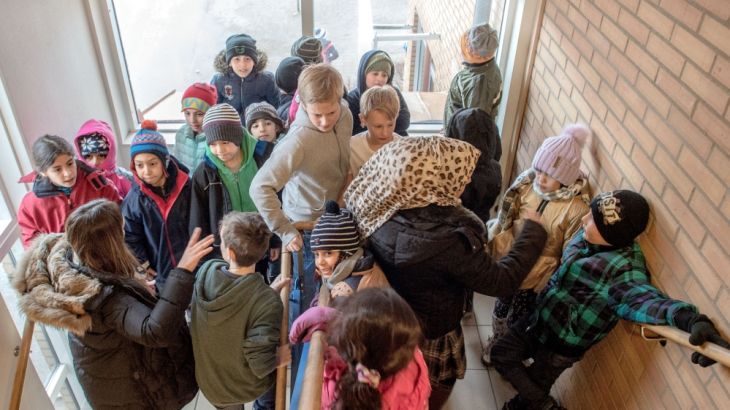
Sweden’s backlash: Why the tide is turning for refugees
We speak to Swedish politicians and citizens to find out what is behind the current backlash against immigration.
Sweden received more refugees per capita than any other European country last year, but many Swedes have started to question the country’s immigration policies as crime rates and extremism are on the rise.
We are one of the least racist countries and we have great policies when it comes to giving welfare to immigrants and we don't make a difference between immigrants and residents or citizens even. So when it comes to all that I think we have been great, but we also need to understand that it's not an eternal order, that everything will work fine in Sweden, so when we reached a limit, we reached a limit, and this is our limit.
Traditionally, Sweden has been viewed as welcoming to refugees.
In 1970, most immigrants came from other European nations such as Finland, Yugoslavia, Denmark and Greece. The 1980s saw people come from Iran, Chile, Lebanon and Turkey.
In the past 10 years, the numbers have taken off and in 2015, nearly 163,000 individuals applied for asylum in Sweden, a nation of 9.8 million people.
Syrians accounted for 51,000 of these asylum seekers, 41,000 came from Afghanistan, 20,000 from Iraq, along with thousands from Eritrea, Somalia and Iran. A combined 4,000 came from Albania and Kosovo.
Today, around 1.6 million people living in Sweden were born in another country – that is 16 percent of the population.
Many new arrivals are languishing in temporary housing, beggars and homeless live in the streets, and some neighbourhoods have seen an uptick in violence and extremism.
Concerns over security are growing and recent information about members of the Islamic State of Iraq and the Levant (ISIL, also known as ISIS) living in Sweden and going to fight in Syria has received lots of media attention. According to Swedish police, around 300 people, many of them from the city of Gothenburg, are believed to have gone to Syria.
Then there’s violent crime – in the past several months murders and assaults have taken place in asylum centres and in neighbourhoods with large numbers of immigrants.
The Sweden Democrats, the only party that has been advocating a more restrictive immigration policy, is now the third largest party in opinion polls, despite efforts by established political parties to isolate it.
So, what is behind the recent backlash against immigration in Sweden? Why is the tide turning for refugees in Sweden?
Al Jazeera went to the Swedish community of Ostra Goinge, an area that has received a number of new immigrants, to speak to citizens and politicians about the country’s immigration policies.
Mayor Patric Aberg is a member of the Moderate Party, traditionally seen as a business-friendly party opposed to the ruling Social Democrats. He is calling for a “pause” to accepting applications for asylum. While he speaks of economic benefits he says there’s a need to foster better “social integration”.
“In Sweden right now I think we need a pause. In a very short period of time, since June last year, we have received more than 100,000 refugees. As you may have seen here in our community, we have very few apartments, we don’t see a growth of jobs enough to employ all those coming … We cannot in such a short period of time take care of so many people, our system cannot handle this,” Aberg says.
“You look around the world and you hear reports about what’s going on in Stockholm, Sweden, Europe and ask: will the people arriving here bring these problems with them? And I think this spread of fear is growing and we really need to work hard to ease their fear. It’s not as unsafe as people think. But it’s a feeling people have and we should take it seriously,” he says.
Locals in Ostra Goinge have mixed feelings about refugees and migrants settling in Sweden.
“I guess they are all doing the best they can… but, well, I guess we have too many immigrants. It’s been hard on the schools and our welfare system … We have received so many, and it takes time for them to integrate … We have had problems with break-ins here, I have had a break in. That’s something I never experienced before,” says citizen Maria Alm.
We also speak to the Swedish Interior Minister, Anders Ygeman, who is responsible for police and border controls; Marja Lemme, a political scientist at Stockholm University; and Ivar Arpi, a columnist for the Svenska Dagbladet newspaper.
You can talk to Al Jazeera too. Join our Twitter conversation as we talk to world leaders and alternative voices shaping our times. You can also share your views and keep up to date with our latest interviews on Facebook.